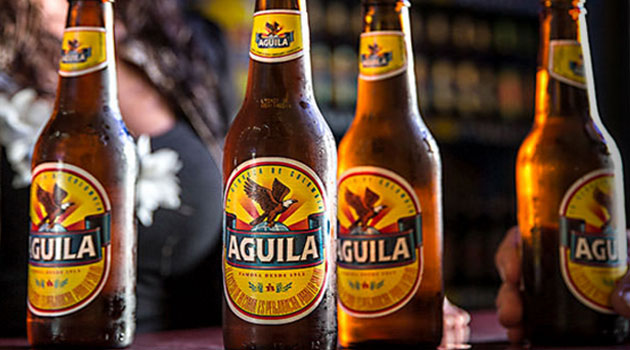– Tough competition –
Other key challenges include building breweries with their own electricity, water and waste facilities; and distributing beer via a network of bad roads that link countless neighbourhood kiosks and small stores.
Islamist militancy in Nigeria and Kenya also poses potential risks, as do unpredictable government regulations.
SABMiller has had a rocky experience in Kenya, entering the market in 1998 but withdrawing in 2002 after struggles with a local partner, and returning in 2010 when it bought Crown Beverages.
Since then, it has launched several beers for the Kenyan market, including Castle Lager, Castle Milk Stout and Redds.
SABMiller face tough competition in the region, which is dominated by East African Breweries, part of the drinks giant Diageo, which produces Kenya’s ubiquitous Tusker lager, Tanzania’s Serengeti and Uganda’s Bell.
In Nigeria, SABMiller is pushing hard after its late arrival in 2008, and in 2012 opened a new $100-million brewery to launch Hero beer, which it hopes will take on market leader Star lager, brewed by Heineken.
“Beer is highly aspirational but expensive for most Africans the intention is to find ways over time to progressively bring this price down,” said SABMiller Africa chief Mark Bowman in a recent presentation.
“It is becoming easier to do business in Africa. We have been doing it for many, many years. We have the experience, we know how to operate in Africa. I think it is a growth region.”



































